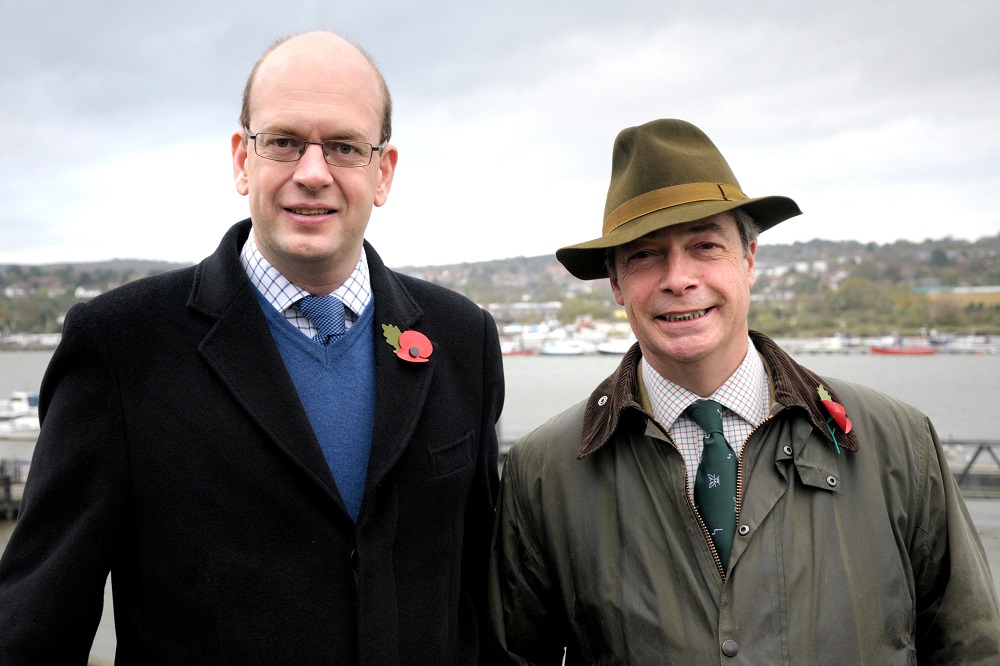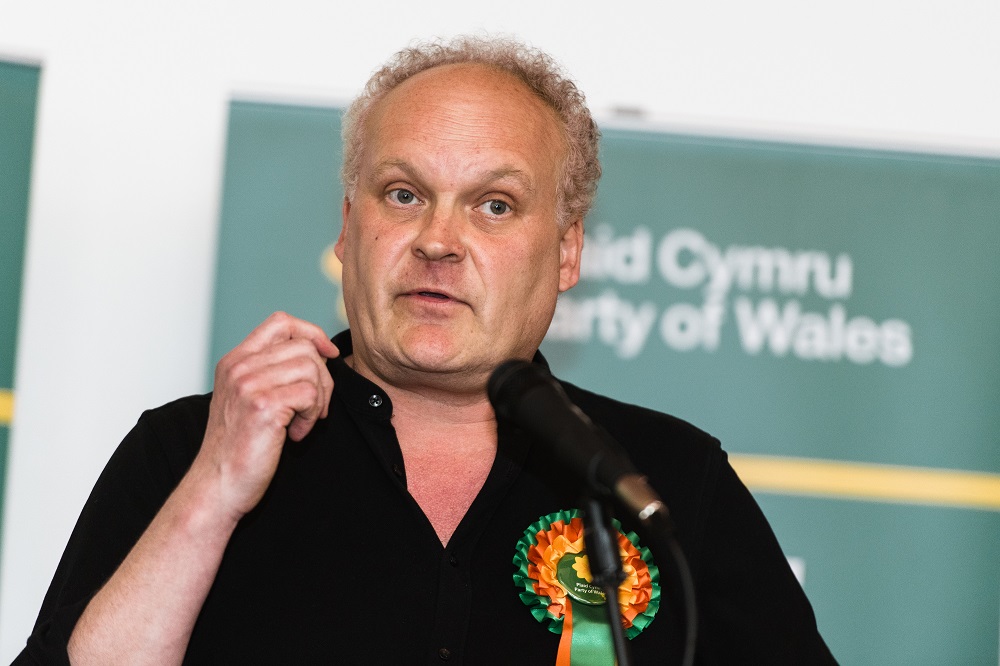The Brexit Party is a Trojan Horse for a nastier kind of politics

Patrick McGuinness, Plaid Cymru EU election candidate
Amid the frenzy of electioneering, polling, and focus-grouping, one thing can be seen with devastating clarity: the Brexit Party has arrived.
Whether it is here to stay is less sure. Even if, as some predict, the political balance reverts, the Brexit Party – a single-issue outfit led by Mark Reckless, a thrice-defecting ex-Tory/UKIP/Tory politician – is now an official party in the Assembly.
It is too late now for the press to try to hold Farage’s party to account. Despite Arwyn Jones’s heroic attempt to extract a plausible answer from him about Wales-specific issues and Matt Frei’s questions about the money Farage is paid by billionaire Arron Banks, it no longer matters that neither Farage nor his sidekicks have any answers.
It no longer matters that they have no solutions, and no positive vision. We’re past the point where either questions or answers, the basic currency of rational debate and rational disagreement, have any sway.
Ask Farage, as Andrew Marr did, about what the implications of Brexit are, and he will refuse to answer and accuse the BBC of bias. Remind him that he stated that he’d like a privatised NHS, despite posing beside a bus claiming that Brexit will ensure an extra 350 million a week for the health service, and he can shrug it off.
Ask Mark Reckless, as Aled ap Dafydd did, what he thinks of fellow Brexit party AM David Rowlands’s admiration for Tommy Robinson (‘a courageous character’), and he replies: ‘no comment’. Nothing to see here, as the saying goes: move along.
If we ask Farage and his party about the dark money and darker ideas behind the push for a no deal Brexit, they walk away, or obfuscate, or accuse us of bias.
They can do this because they’ve been allowed to: by the media, by the political establishment, even by the BBC, on whose flagship ‘Question Time’ Farage recently celebrated his 34th appearance with a long, angry, flustered evasion of a basic question about World Trade Organisation deals.
There was a time when holding them to account on the factual content of their politics, not to mention the origins of their cash-flow, might have worked.
Just this week the Austrian far-right Freedom Party’s chancellor was forced to resign when a newspaper caught him offering government contracts in exchange for Russian money.
It shows what happens when all parties are equally scrutinised and held to account.
Delusion
But Farage and his people are now so sure of themselves that they don’t even pretend to know the answers. It’s a sign of how confident they are of their unstoppability that they’ve even started telling the truth, or some of it anyway.
Asked on BBC R5 Live how long the economic downside of Brexit would last, Lucy Harris, Brexit Party candidate for Yorkshire and Humber, replied: ‘I don’t know. The next 30 years’.
Let that sink in: the next thirty years…
Who would have thought that two years after the referendum the ‘winning side’ would be saying exactly the same thing as the people they accused of running ‘Project Fear’?
But that is where we are, whether we voted Brexit or Remain: we were told an avalanche of lies, and now the liars can’t even be bothered to pretend any more.
Farage’s party looks set to do extremely well in Wales on Thursday. Both of the traditional London parties have been caught out by the Brexit party’s mix of simple messaging and policy-free reaction: the Conservatives by being simply too punch-drunk, played-out and self-destructive to stand upright, and Labour by gambling that when push came to shove people would vote for their version of Brexit, choosing the bad instead of the dreadful.
The great delusion of Labour, both Corbyn’s and Drakeford’s, was to think you take a beast like Brexit – a fantasy of the right, the free-marketeers, and the isolationists – and harness it leftwards.

Reactionary
What we need to think about now, in a Welsh context, is what further plans the Brexit party have for our country. No single-issue party stays single-issue for long.
Wales’s politicians would do well to think about the implications of the continued success of Farage’s political programme. If, as he claims, he’s back for the long haul, we can expect the Brexit party to be a conduit for a traditional package of reactionary and far-right views.
The party’s English nationalist base will be eked out, in Wales, with anti-Assembly and anti-Welsh politics, and with the politics of grievance.
One of the more peculiar comments by Mark Reckless in an interview with Martin Shipton was: ‘There are as many people who live in Wales who were born in England as there are people who speak Welsh, and they are equally deserving of representation…’
This comment seems to me to be at best naive, at worst sinister. Does Reckless and his Brexit party think that people should vote according to their ethnicity, or that Welsh and English people living in Wales should vote differently based on their origins? Or that English people like me shouldn’t vote Plaid Cymru?
Was that a dog-whistle or a mere clumsy piece of phrasing? When I moved to Wales, I had been a Labour member; I joined Plaid after a couple of years living here, and now I have decided to stand for the party in my adoptive country. The idea that Mark Reckless and his ilk ‘represent’ me solely because I am English is laughable.
Turbulent
The Brexit party’s social media presence is already explicitly anti-Welsh language, while the UKIP AMs from whom the new party takes its members haven’t ruled out campaigning for the abolition of the Welsh Assembly.
Then there are the standard bundle of right-wing siege-mentality beliefs: climate-change denial, misogyny and xenophobia already plentifully on display in UKIP, and a crazed determination to privatise every part of what we call a society – starting with the NHS, whose salvation they conned people into believing they were voting for.
While many people will surely vote for Farage’s party because they are fed up with politics (and from where I’m standing it’s often hard to blame them), there’s no escaping the fact that this new party – whether you call in the Brexit party, UKIP Mark 2, or the cult of Farage, is the Trojan Horse through which a new and nastier kind of politics will enter UK political life.
That Wales, which can least afford this kind of political and economic world view, has provided its first official outing as a party, signals turbulent times for a fragile democracy.
Patrick McGuinness is a plaid candidate and writer. His latest novel is Throw Me to the Wolves.
We can’t run Nation.Cymru without your help! If you support the development of an independent Welsh media for the people of Wales, please donate now!
Support our Nation today
For the price of a cup of coffee a month you can help us create an independent, not-for-profit, national news service for the people of Wales, by the people of Wales.





